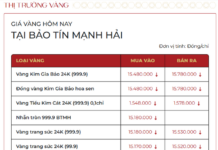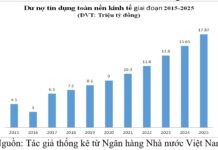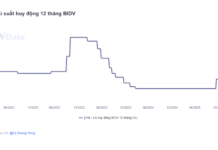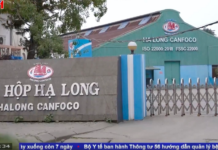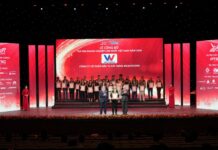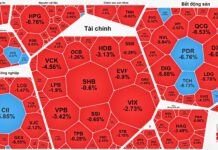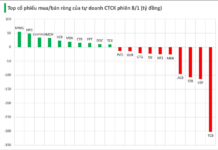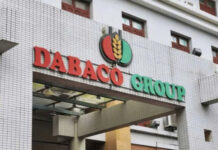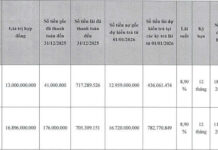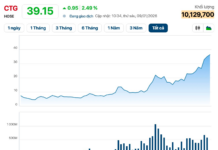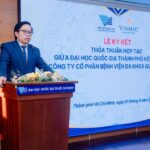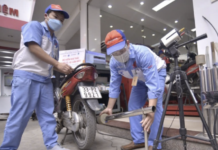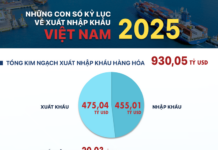The Vietnamese PE Market is set to take off
At the workshop “Legal Framework and Capital Mobilization Solutions for Enterprises” on August 14, experts from the Vietnam International Arbitration Center (VIAC), W&A Consulting & Law Firm, and Auxesia Holdings agreed that private equity funds will play an increasingly significant role in providing capital for Vietnamese enterprises.
“The period of 2025-2030 will witness private equity funds emerging as a crucial factor in capital mobilization. However, the key lies in enterprises viewing them as strategic partners, rather than merely financial transactions,” emphasized Dr. Phan Hoai Nam, CEO of W&A Consulting & Law Firm.
Ms. Ma Thanh Loan, CEO of Auxesia Holdings, predicted that the PE market is expected to recover from 2025. This activity began to take shape in 2007 when the 2005 Enterprise Law took effect and Vietnam joined the WTO. By 2010, PE gained momentum, peaking in 2019 at $4.8 billion, before slowing down due to COVID-19. Capital inflows resumed in 2021, reaching $2.3 billion in 2024.
Currently, there are two main groups of funds in the market with distinct investment scales. Domestic funds such as Mekong Capital, VinaCapital, and Vietnam Investment Group typically invest in deals from $10 million upwards, focusing on consumer goods, healthcare, education, technology, and retail. Mekong Capital has successfully invested in The Gioi Di Dong, Viet Uc School, F88 chain, and Golden Gate.
In contrast, regional funds require a scale of $20 million, while international funds like KKR, Warburg Pincus, Temasek, and GIC usually seek deals of at least $50 million, preferring those over $100 million. Warburg Pincus is one of the most active international funds, having invested $200 million in Vincom Retail, $350 million in Techcombank, and more recently in MoMo and Xuyen A Hospital.
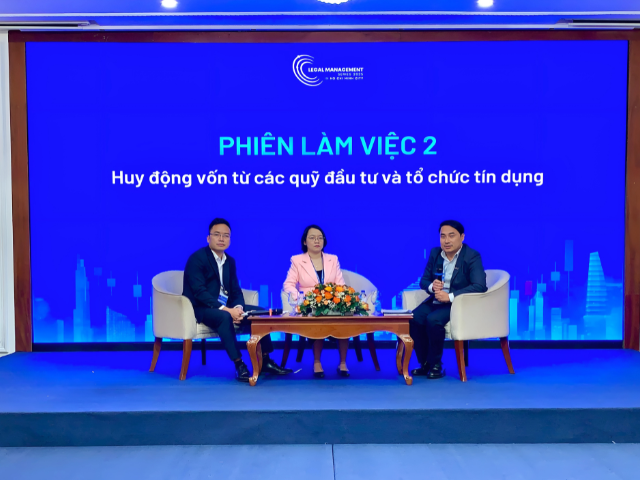
From left to right: Mr. Phan Hoai Nam, Ms. Ma Thanh Loan, and Mr. Chau Viet Bac – Photo: Tu Kinh
|
Consumer goods, healthcare, and technology continue to lead capital inflows
Dr. Phan Hoai Nam forecasted three main trends that will shape the Vietnamese PE market in the coming years. Firstly, there will be a shift in the mindset and capital needs of enterprises.
“Previously, Vietnamese enterprises primarily relied on banks or the stock market. However, after numerous economic fluctuations and credit tightening, seeking alternative capital sources has become imperative,” he analyzed.
According to Mr. Nam, PE not only provides capital but also brings added value in the form of management expertise, market networks, and development strategies. This is a significant advantage for businesses aiming to expand their scale or prepare for an IPO.
In terms of sectors, he predicted that consumer goods, retail, healthcare (medical equipment and pharmaceuticals), education, and technology would continue to attract the most investment in the coming years.
Potential legal revisions to offer incentives for venture capital funds
The second trend is the stronger participation of foreign funds. While M&A and direct investment activities in Vietnam have been relatively subdued recently, the country’s stable political environment, 8.2% GDP growth this year, and large consumer market continue to make it an attractive destination for investors, especially those from Singapore, Hong Kong, South Korea, and Japan.
Mr. Nam anticipated that this trend would accelerate from 2026 to 2030. In addition to traditional M&A deals, many funds will employ the minority investment with governance rights model, holding a small stake while still participating in management, allowing enterprises to retain autonomy. Some funds also utilize the platform investment strategy, investing in a core company and then expanding by acquiring businesses in the same industry.
The third trend pertains to the legal framework and enterprise preparedness. According to Mr. Nam, Resolution 68 is a “strategic pivot” that significantly supports the private sector. He mentioned the possibility of amending the Law on Supporting Small and Medium-sized Enterprises to include incentives for venture capital funds.
Enterprises need to be “investment-ready” to attract PE capital
However, PE always comes with a rigorous due diligence process involving specialized financial teams. Ms. Ma Thanh Loan pointed out a common challenge: most Vietnamese enterprises are family-owned and often maintain two or three separate sets of books, hindering their access to capital.
“Some enterprises even inflate their chartered capital to beautify their financial statements, registering capital contribution in cash but lacking the actual money in their vaults. When discovered during the fund’s due diligence process, this becomes a serious issue,” added Mr. Nam.
Based on his experience, he shared that several potential deals in the environmental and technological fields had fallen through due to financial and legal discrepancies uncovered during the due diligence phase.
To mitigate risks, experts advised enterprises to attain an “investment-ready” status from the outset, encompassing financial transparency, improved governance, a clear long-term strategy, and legal compliance.
Attorney Chau Viet Bac, Deputy Secretary-General of VIAC, also emphasized the complexity of disputes involving private equity funds, requiring lawyers to be intimately involved in both legal and financial aspects, along with a transparent legal framework.
With the support of Resolution 68 and the ongoing refinement of preferential policies, Vietnam’s private investment market is expected to enter a phase of robust growth. As Mr. Nam concluded: “Enterprises will find numerous opportunities through private investment capital, but success will only come to those who proactively prepare and view investment funds as long-term strategic partners.”
Proposed Title: Petition to the State Bank to Lower the Deposit Interest Rate Cap
To continue fueling credit growth from now until the end of the year and to support businesses and boost economic growth, several banks have proposed a number of measures related to capital mobilization and interest rates, among other things.
“Vinmec and Ho Chi Minh City National University Join Forces to Enhance Healthcare Quality”
Vinmec Healthcare System and Ho Chi Minh City National University (HCM NIU) have forged a strategic partnership to enhance the nation’s healthcare standards and develop high-quality medical personnel. This collaboration aims to synergize the expertise of both institutions, elevating the level of healthcare services and fostering professional excellence within the medical community in Vietnam.
“Profitable Growth: WinCommerce’s Fourth Consecutive Quarter of Success”
WinCommerce continues to thrive and profit for the fourth consecutive quarter, attributing its success to a strategic rural expansion. This proactive approach has allowed the company to stay ahead of the curve, catering to the evolving needs of modern consumers, particularly in underserved rural areas. This strategy has proven effective, as traditional channels struggle to keep up with changing consumer trends.
2.222 Long Châu Pharmacies: A Mission for a Healthier Vietnam
After nearly a decade of unwavering dedication to community health, Long Chau Pharmacy reached a significant milestone in early July 2025. With the opening of its 2,222nd pharmacy, the company solidified its presence across Vietnam, bringing its expert healthcare services to every corner of the nation.







